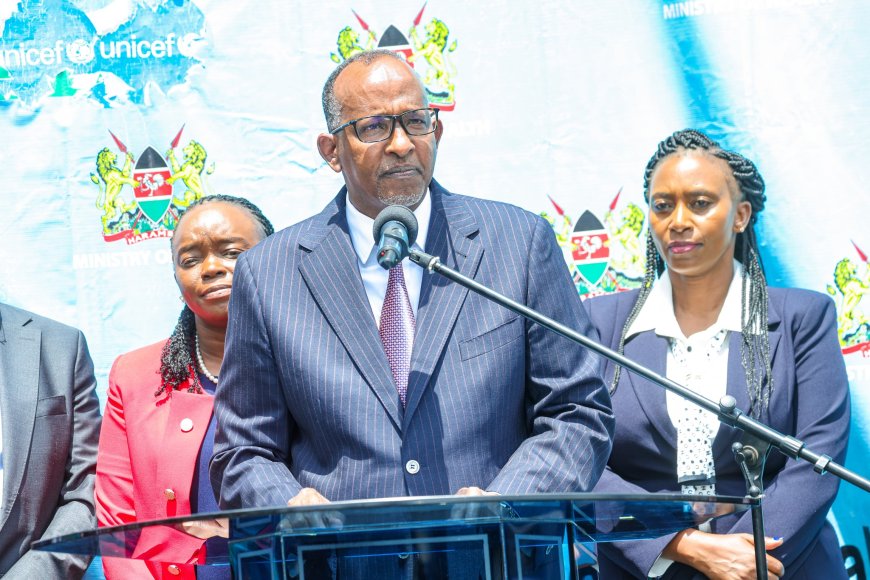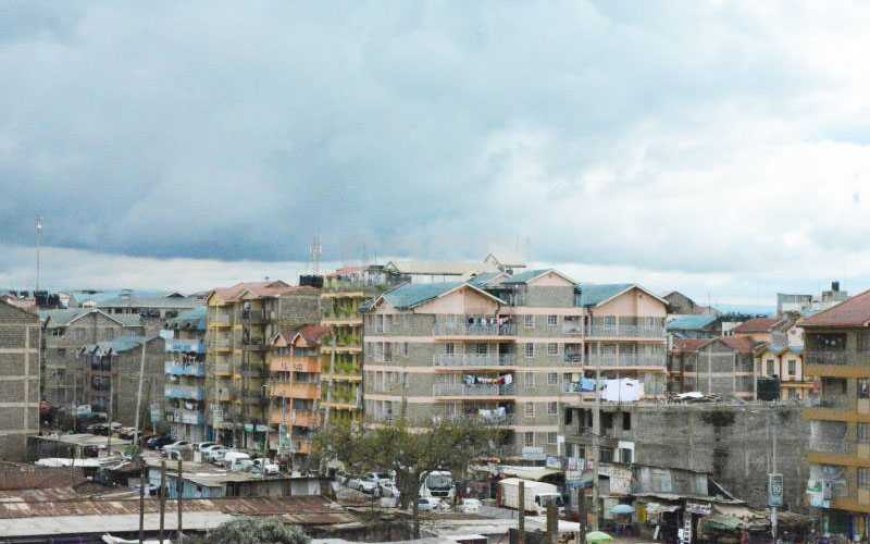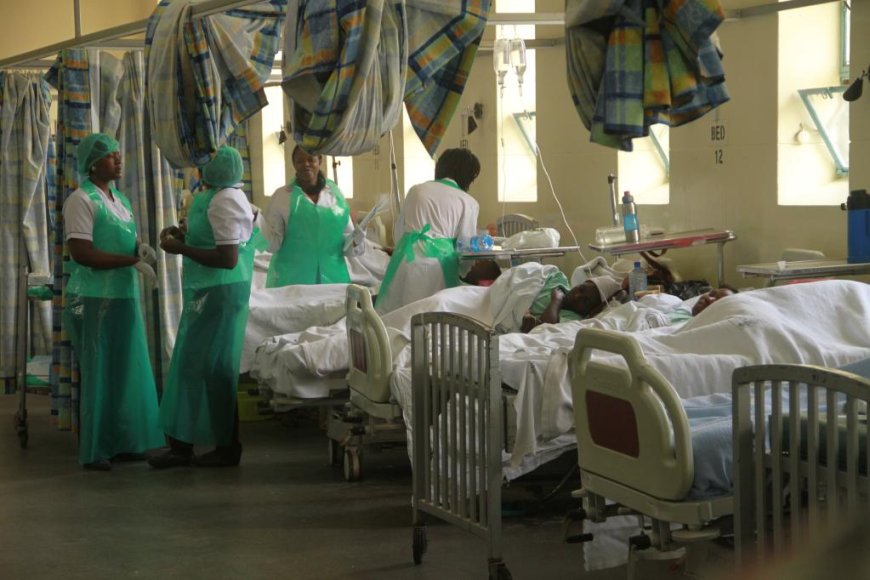CS Duale Lists Roysambu & 5 Nairobi Estates Affected By Cholera Outbreak
Health Cabinet Secretary, Aden Duale, confirmed that as of Sunday, April 6, 12 cases have been recorded in the 47th county.

The Ministry of Health has confirmed that one death has been recorded in Nairobi County following the cholera outbreak in Kenya.
In a statement on Tuesday, April 8, the Health Cabinet Secretary, Aden Duale, confirmed that as of Sunday, April 6, 12 cases have been recorded in the 47th county.
Amongst the sub-counties in Nairobi, Kasarani, Embakasi East, Embakasi Central, Roysambu, Kibra, and Dagoretti South are the hardest-hit. The counties, in terms of map view, are quite close to each other on different sides, with the first three in the Eastern region of Nairobi and the final two in the Western region.
Nationally, a total of 97 cholera cases, including six fatalities (Case Fatality Rate: 6.2%), have been reported. Other than Nairobi, Migori and Kisumu counties were revealed to be the most affected by the outbreak.

An image of Roysambu estate in Nairobi. /STANDARD DIGITAL
"The Ministry of Health wishes to confirm a cholera outbreak currently affecting parts of the country. Cholera is a highly infectious waterborne disease caused by a bacterium known as Vibrio cholerae. The disease is contracted through consuming food or water contaminated with the bacteria," the statement read in part.
"Symptoms include the sudden onset of severe watery diarrhea, vomiting, muscle cramps, and severe dehydration, often appearing within 2 hours to 5 days after infection. Cholera is a serious disease that can lead to rapid dehydration and potentially death if left untreated. Prompt medical attention is therefore important for persons suspected of being infected with cholera."
Migori County, currently grappling with the outbreak, has recorded 53 cases and one death, with the hardest-hit areas being Suna East, Suna West, Kuria East, and Kuria West.
In Kisumu, 32 cases and four deaths have been reported, with Nyando and Muhoroni sub-counties bearing the brunt of the impact.
Government Intensifies Outbreak Response Across Counties
The Ministry of Health, in partnership with county governments, has rolled out a series of urgent measures to contain the ongoing outbreak affecting several regions across the country.
One of the key strategies is enhanced surveillance, which includes active case finding, contact tracing, and the deployment of rapid response teams at both national and county levels to monitor and contain the spread of infections swiftly.
In addition, healthcare workers are undergoing targeted training to improve their capacity in handling the crisis. This includes sensitization on surveillance techniques, case management protocols, water sanitation practices, hygiene standards, and risk communication methods.
To keep the public informed, the Ministry has ramped up risk communication and community engagement efforts. These include information dissemination through community health promoters, local administrators, and the media. Educational materials, including flyers and videos, are being distributed to ensure that accurate and actionable information reaches the grassroots.
Water, hygiene, and sanitation interventions have also been prioritized. Field investigations revealed widespread consumption of untreated water, prompting the government to initiate household water treatment campaigns, enforce hygiene standards, and implement food safety measures in the affected areas.
Lastly, the Ministry is stepping up case management efforts, which involve testing suspected cases, providing treatment for confirmed ones, and administering prophylaxis to close contacts to prevent further transmission.
Recommended Public Health Actions
Duale has warned the public against self-medicating, stressing the importance of seeking immediate medical attention when symptoms appear.
He also urged the public to stay alert when handling food—advising that hands be washed before food preparation, meals be cooked thoroughly, clean water be used in cooking, and food stored in hygienic containers.
In addition, the Ministry has called on citizens to drink clean water, use proper sanitation facilities, and dispose of waste responsibly.
Duale also recommended installing public handwashing stations stocked with clean water, soap, or hand sanitiser to help reduce the risk of infection. At the same time, he assured the public that the Ministry will keep deploying rapid response teams nationwide and continue training healthcare workers on how to manage cases effectively.







